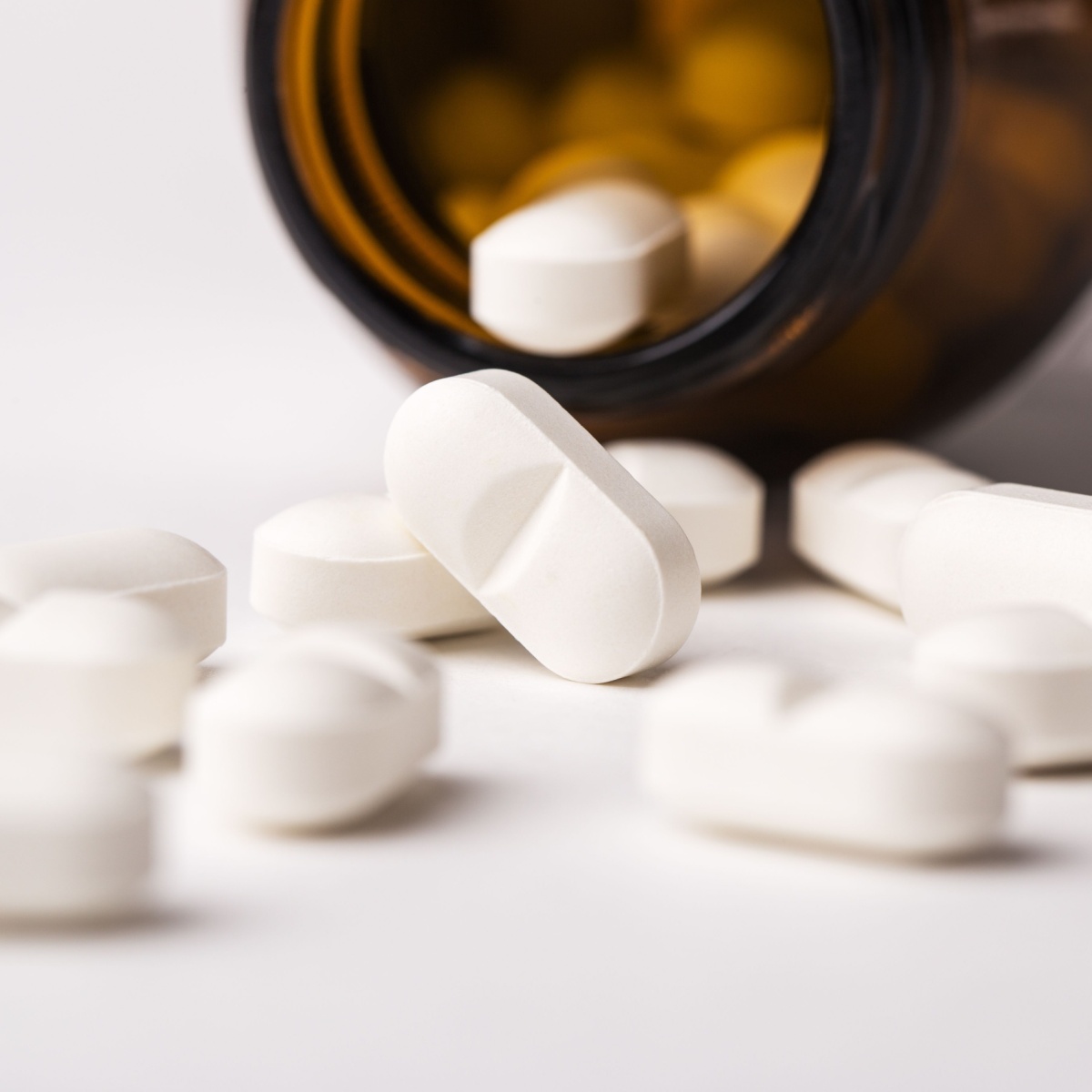
1. Calcium
Bone density naturally decreases with age, making bones more prone to fractures and osteoporosis. Calcium is vital for maintaining strong bones and teeth, which is why medical professionals highly recommend this supplement.
"Several studies have reported that dietary intake of these nutrients turns down as age advances. So, after 50 years, many tend to have an inadequate dietary intake of calcium," says Dr. Madathupalayam Madhankumar of iCliniq.com.
Osteoporosis is a common issue in this age group, as he adds, "It's a troubling medical condition that most individuals develop once they drive past a certain age," and by taking calcium, "you can protect yourself from getting osteoporosis."
2. Vitamin B12
You’ll notice a lot of seniors taking vitamin B12 shots, and this is for a reason. B12 plays a key role in red blood cell formation, DNA synthesis, and nerve function. As we age, stomach acid production declines, reducing the body’s ability to absorb B12 from food. Deficiency of this vitamin can lead to fatigue, memory issues, and even nerve damage.
"The absorption of vitamin B12 from the diet reduces with aging, and that is why we have to get vitamin B12 supplements to counter the deficiency," he adds.
3. Vitamin D
You may think of vitamin D as the bone vitamin. And while it's true that getting an ample amount is crucial to promote strong teeth, bones, and muscles, Joanna Wen, certified weight loss coach and founder of Spices and Greens, says this vitamin is also a major factor in weight loss and metabolism. "Vitamin D helps keep your hormones balanced and regulates your metabolism, which is why it's essential for successful weight loss," she explains.
But it isn't just the role that vitamin D plays in your hormones that makes it an important addition to your diet. Wen points out that it "also helps prevent inflammation that can make it harder for your body to shed pounds." That means if you're suffering from a vitamin D deficiency, you may run into the issue of increased inflammation, "which can have a negative impact on hormones that control appetite and metabolism." Yikes!
4. Magnesium
"Magnesium plays a critical role in many bodily functions," Dr. Rimas Geiga, MD, explains. "It regulates muscle and nerve functions, blood sugar levels, and blood pressure." For individuals navigating the challenges of aging, these functions are pivotal in maintaining muscle function and cardiovascular health and reducing the risk of conditions like hypertension and type 2 diabetes.
One of the standout benefits of magnesium is its ability to improve sleep quality, which often diminishes with age. "Magnesium has natural calming properties," Dr. Geiga notes. "It activates the parasympathetic nervous system, promoting relaxation and calmness."
And that's not all; many studies have suggested that magnesium intake could potentially aid in a longer, healthier life. "Magnesium protects cells from oxidative stress and inflammation," Dr. Geiga emphasizes. "These are key drivers of aging and chronic diseases." Ensuring adequate magnesium intake through diet may thus play a pivotal role in aging gracefully and maintaining vitality.
5. Prebiotics
TikToker stacidhall, who lost 44 pounds during menopause, explains that a prebiotic along with a pro- and post-biotic is even better! This is because "it will bypass the stomach acids and get down to that lower intestine where it needs to be to help heal your gut flora."
She says your gut is essentially your immune system, "your second brain," so having poor gut health will throw everything off, including excess weight.
6. Omega-3 Fatty Acids
Being deficient in Omega-3s can affect your mood and even increase inflammation, she reveals. "It also makes it way harder for you to lose weight; it's one of those things that helps you keep your hormones balanced."
Avoid: High-dose antioxidants
While antioxidants are generally beneficial in moderate amounts, excessive intake can upset the delicate equilibrium of free radicals and antioxidants in the body.
Dr. Kevin Huffman, CEO & Founder of Ambari Nutrition, sheds more light on this and notes that you should "beware of high-dose antioxidants [because] beta-carotene and high-dose vitamin E supplements might sound harmless, but studies suggest that they can upset the equilibrium of gut bacteria. High doses of beta-carotene appear to increase lung cancer risk in smokers, while high-dose vitamin E supplements have been linked to increased bleeding risk."
Avoid: Multivitamins with excessive zinc
High doses of zinc are another one that can irritate the stomach lining, which in turn leads to discomfort and digestive upset. Too much zinc intake may also disrupt the balance of gut bacteria, potentially harming the beneficial microbes that support digestion and overall gut health.
Michael O. McKinney, MD from Healthy Outlook states, "It also said zinc forms an important part of the immune system but is toxic in excess; this interferes with the gut lining, making it irritated and inflamed. It also results in an imbalance of the bacteria levels in the stomach, causing digestive issues when taking too much of this metal."
To avoid this, it's important to stick to recommended zinc levels and talk to a healthcare professional before taking high-dose multivitamins.
Avoid: Caffeine-Based Supplements
Many energy enhancers and weight loss aids contain caffeine. Unfortunately, while this may give you an energy boost, "These can irritate the bladder and make it secrete more often," Dr. Michael Lahey warns, adding that they can also increase the urgency to urinate. This is especially concerning for people with pre-existing bladder conditions or sensitivity.
Instead of caffeine pills or supplements, he recommends using natural alternatives like green or chamomile tea in small portions. These choices will give you a gentler energy boost without overloading your bladder. In addition to avoiding caffeine supplements, it's best to avoid excessive intake of caffeinated beverages like tea, coffee, or sodas. All in all, monitoring your intake is crucial!


